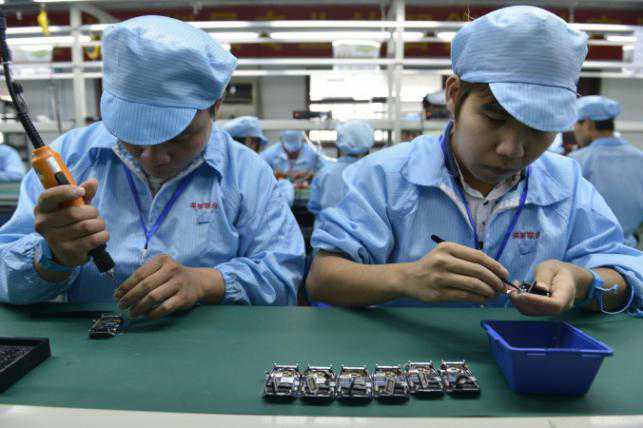China still confident of hitting 2018 growth target

China is still confident of hitting its economic growth target of around 6.5 per cent this year despite views that it faces a bumpy second half as a trade row with the United States intensifies, the state planning agency said on Tuesday.
The remarks came a day after China reported slightly slower growth for the second quarter and the weakest expansion in factory activity in June in two years, suggesting a further softening in business conditions in coming months as trade pressures build.
Even after Monday’s weaker data and the latest US tariffs, most economists predict Beijing is still likely to come in around its official GDP growth target this year, though some China watchers believe activity levels are already much weaker than official data suggest.
Yan Pengcheng, spokesman for the National Development and Reform Commission (NDRC), told a news conference that China has ample policy room to deal with any shocks.
“Overall, We have the confidence, conditions, and enough capability to effectively cope with the uncertainties in the world economy and make sure we accomplish the target we set at the beginning of the year,” said Yan.
Yan said he was responding to “some views” that China will have a tough time keeping maintaining stable economic development in the second half this year due to the Sino-US trade frictions and domestic structural problems.
“China will improve the flexibility of macro-economic policy and ensure the macro-economic fundamentals remain stable,” said Yan, adding that policymakers also will expand effective investment and look for ways to boost domestic demand.
He cited a number of supportive factors for the economy, including China’s low budget deficit ratio and government debt levels, commercial banks’ high capital adequacy ratio and provision coverage ratio, declining corporate debt levels and plenty of policy tools that authorities can employ.
Yan also said the NDRC had approved 102 fixed-asset investment projects in the first half of this year, worth a combined 260.3 billion yuan ($39 billion).
China’s economy has already felt the pinch from a multi-year crackdown on riskier lending that has driven up corporate borrowing costs. Policymakers have started to step up support for the economy and may be softening their campaign to reduce a rapid build-up in debt.
For firms impacted by the Sino-US trade frictions, China will provide “targeted” help after assessment of the impact, Yan said, without giving details.
“If the trade war does hit the economy hard, then the government will substantially increase investment, especially in high-tech sectors. This will help stabilise economic growth and job security to stave off social unrest,” economists at ING said in a note on Monday.
“In this instance, the central bank will put financial deleveraging aside to focus on growth.”
But ING added: “Though the government will provide support via fiscal and monetary policies, it is inevitable that industrial production will slow (as the trade war weighs on manufacturing and logistics sectors), which could hurt wage growth and consumption.”
Source: http://en.prothomalo.com
Tags :
Previous Story
- Kitchenware buyers clean up after French World Cup...
- China's trade surplus with US hits record amid...
- A zero tariff auto deal could be true...
- Chinese firm sets up ‘cockroach farm’ to produce...
- China's Ant Financial is not looking to ‘buy’...
- Prospect of jute in Bangladesh
- FBCCI leaders invite Chinese investment
- FBCCI invites Chinese investment in textile